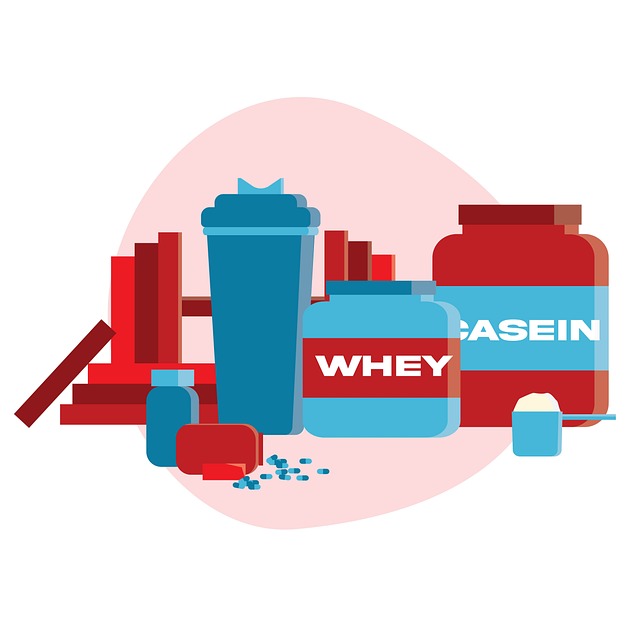Fueling Athletic Performance: The Role of Nutrition in Sports
The intersection of nutrition and athletic performance has long been a subject of fascination for scientists, coaches, and athletes alike. From ancient Greek Olympians consuming specialized diets to modern-day elite competitors meticulously planning their meals, the food we eat has been recognized as a crucial factor in achieving peak physical performance. This connection between diet and athletic prowess has evolved significantly over time, shaped by advances in nutritional science, sports medicine, and a deeper understanding of human physiology. Today, the field of sports nutrition stands as a complex and dynamic discipline, offering tailored approaches for various athletic pursuits and individual needs.

The 1960s marked a turning point with the introduction of sports drinks, designed to replenish electrolytes lost during intense physical activity. This innovation paved the way for a more specialized focus on hydration and nutrient timing. By the 1980s and 1990s, sports nutrition had evolved into a distinct field, with researchers exploring the optimal balance of macronutrients, the benefits of carbohydrate loading, and the potential of ergogenic aids.
Macronutrients: The Building Blocks of Athletic Nutrition
At the core of sports nutrition lies the careful manipulation of macronutrients: carbohydrates, proteins, and fats. Each plays a vital role in supporting athletic performance and recovery. Carbohydrates serve as the primary fuel source for high-intensity activities, with athletes often adjusting their intake based on training volume and competition schedules. Protein, crucial for muscle repair and growth, has seen increased emphasis in recent years, particularly in strength-based sports.
Fats, once viewed with suspicion in athletic circles, have gained recognition for their importance in hormone production and as an energy source for endurance activities. The ideal macronutrient ratio varies depending on the sport, individual physiology, and specific performance goals, highlighting the need for personalized nutrition strategies in athletics.
Micronutrients and Performance: Beyond the Basics
While macronutrients often take center stage, the role of micronutrients in athletic performance cannot be overstated. Vitamins and minerals play crucial roles in energy production, oxygen transport, and muscle function. Iron, for instance, is essential for endurance athletes due to its role in hemoglobin formation and oxygen delivery to muscles. Calcium and vitamin D are critical for bone health, particularly in sports with high impact forces.
Antioxidants like vitamins C and E have garnered attention for their potential to combat exercise-induced oxidative stress, although the optimal timing and dosage remain subjects of debate. The growing understanding of micronutrient needs in athletes has led to more sophisticated supplementation strategies, tailored to address specific deficiencies and performance demands.
Hydration Strategies: Balancing Fluid and Electrolytes
Proper hydration is fundamental to athletic performance, affecting everything from thermoregulation to cognitive function. The field of sports hydration has evolved from simple recommendations to drink water to complex strategies involving electrolyte balance and individualized fluid needs. Research has shown that even mild dehydration can significantly impair performance, leading to the development of sophisticated hydration protocols.
Modern approaches consider factors such as sweat rate, environmental conditions, and exercise duration to determine optimal fluid intake. The use of biomarkers to assess hydration status has become increasingly common, allowing for more precise hydration strategies. Additionally, the debate over the effectiveness of various hydration beverages continues, with ongoing research into the ideal composition of sports drinks for different athletic scenarios.
Nutrient Timing: Optimizing Intake for Peak Performance
The concept of nutrient timing has revolutionized sports nutrition, emphasizing not just what athletes eat, but when they eat it. The post-exercise “anabolic window” has been a particular focus, with research exploring the optimal timing of protein and carbohydrate intake to enhance recovery and adaptation. Pre-exercise nutrition has also received attention, with strategies aimed at maximizing energy availability while minimizing gastrointestinal discomfort.
Intra-exercise nutrition, particularly for endurance events, has evolved to include carefully formulated carbohydrate gels and drinks designed to sustain energy levels and delay fatigue. The field continues to refine these timing strategies, considering factors such as individual metabolic differences and the specific demands of various sports.
Personalized Nutrition: The Future of Sports Fueling
As our understanding of nutritional science and genetics advances, the trend towards personalized nutrition in sports is gaining momentum. The recognition that individual athletes may respond differently to various nutritional interventions has led to more tailored approaches. Genetic testing, metabolic profiling, and gut microbiome analysis are increasingly being used to inform dietary recommendations for athletes.
This personalized approach extends beyond macronutrient ratios and calorie intake to include considerations of food sensitivities, nutrient absorption efficiency, and even chronotype-based meal timing. While still in its early stages, personalized nutrition holds the promise of optimizing athletic performance on an individual level, potentially revolutionizing how athletes fuel their bodies for competition and training.
Challenges and Controversies in Sports Nutrition
Despite significant advancements, the field of sports nutrition faces ongoing challenges and controversies. The supplement industry, largely unregulated, presents both opportunities and risks for athletes seeking a competitive edge. The line between legal performance enhancement and doping continues to blur, raising ethical questions and challenges for governing bodies.
Additionally, the prevalence of disordered eating and extreme dieting practices in certain sports highlights the need for a balanced approach to nutrition that prioritizes both performance and long-term health. Emerging research on the gut-brain axis and its influence on athletic performance adds another layer of complexity to sports nutrition strategies.
As the field of sports nutrition continues to evolve, it remains a dynamic and crucial aspect of athletic performance. From the ancient Greeks to modern-day Olympians, the quest to optimize nutrition for peak physical achievement has been a constant pursuit. Today’s athletes benefit from a wealth of scientific knowledge and technological advancements, yet the fundamental goal remains the same: to fuel the human body for extraordinary feats of strength, endurance, and skill. As research progresses and our understanding deepens, the future of sports nutrition promises even more sophisticated and effective strategies for unleashing human potential through the power of food.






